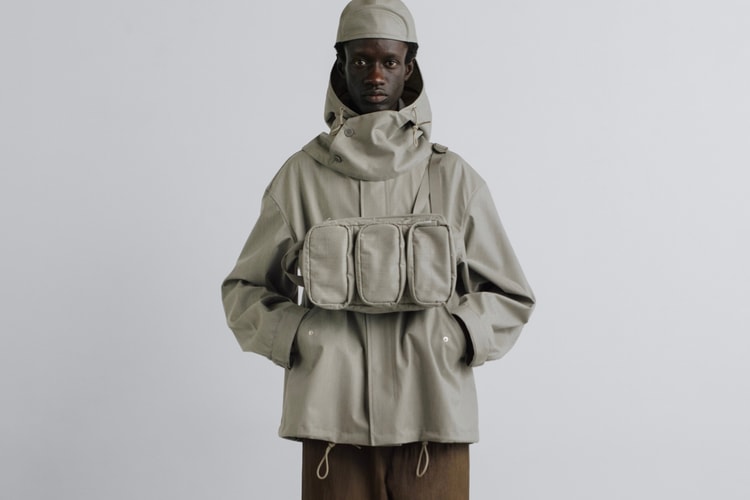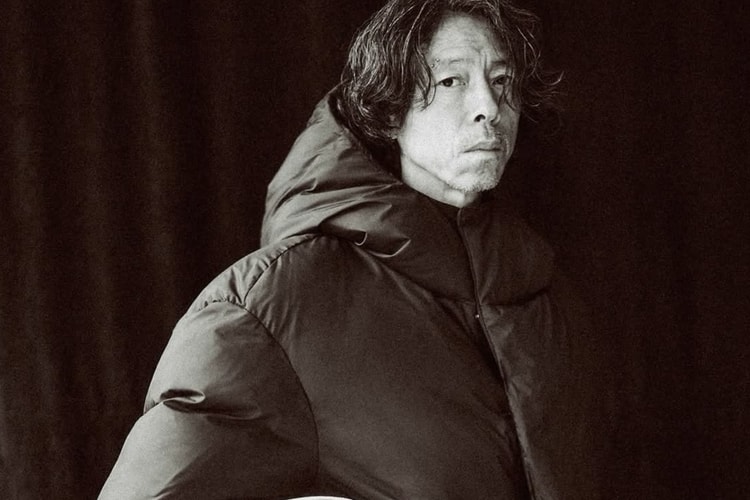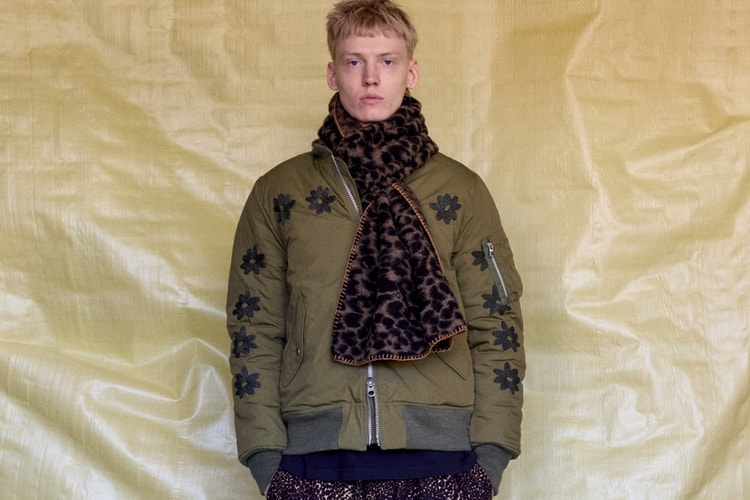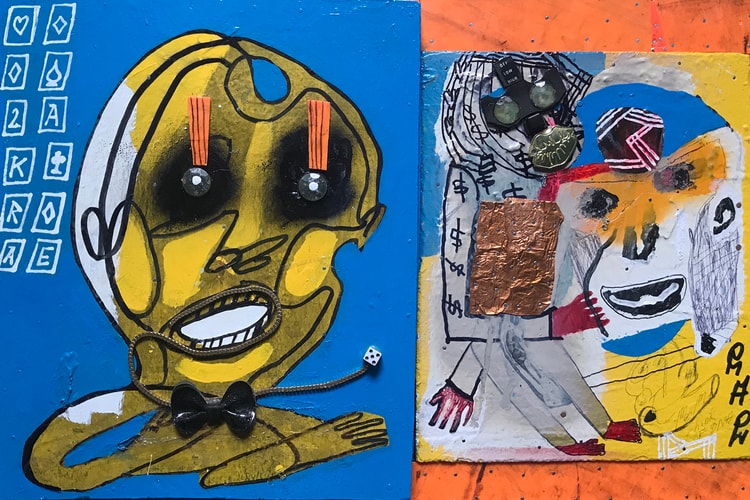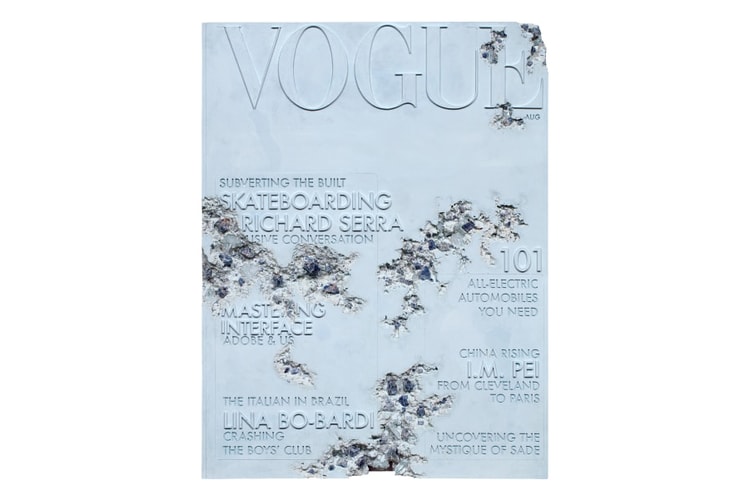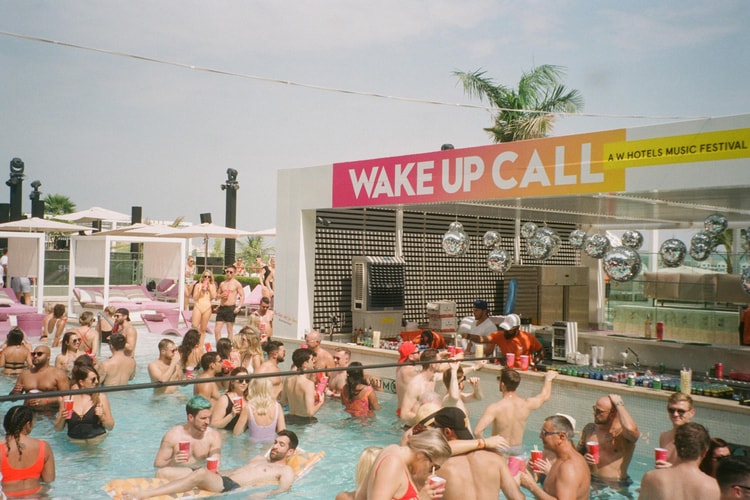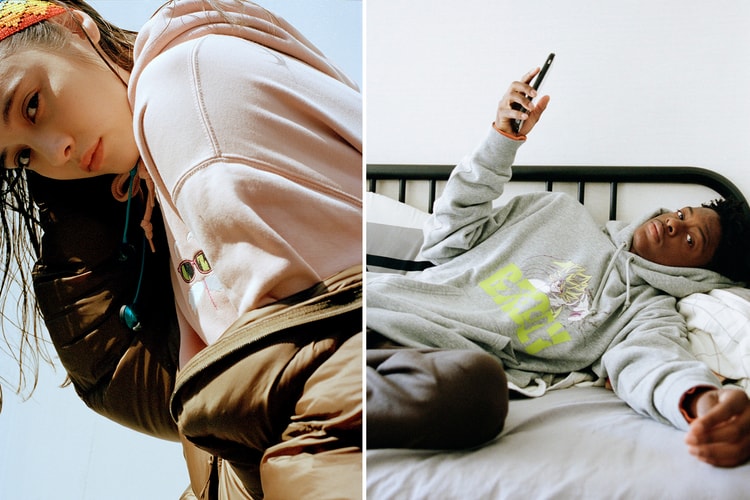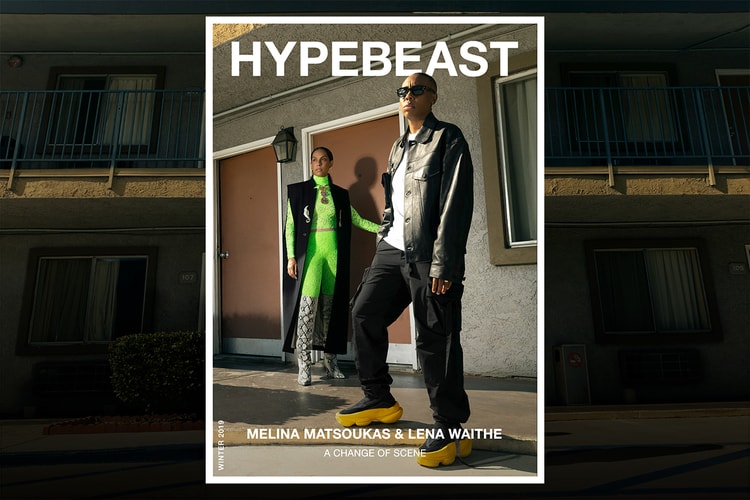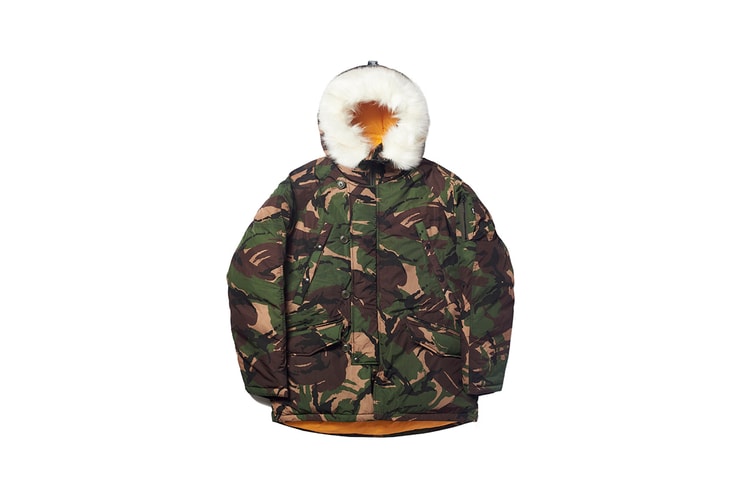How a Small Swiss Brand Tackles Sustainability
SOTTES founders Jeanne Guenat and Elliot Upton are embracing slow fashion.
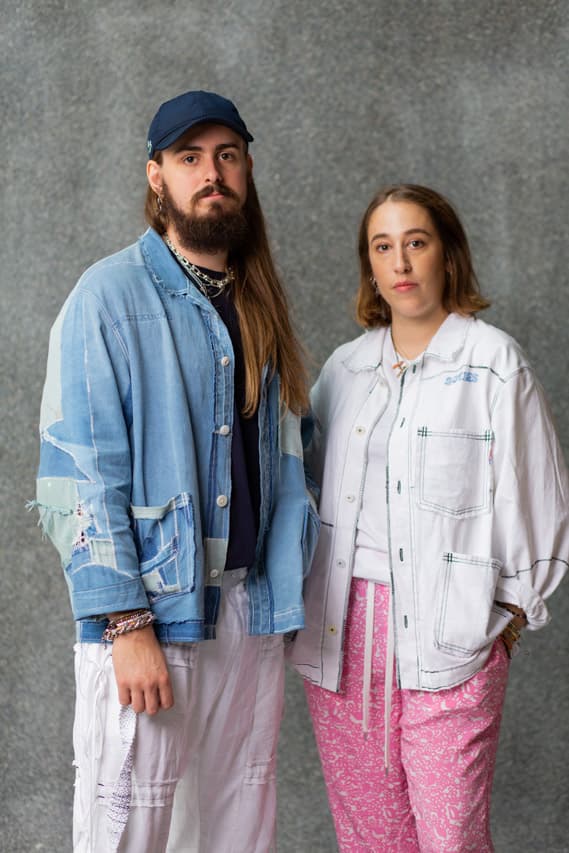
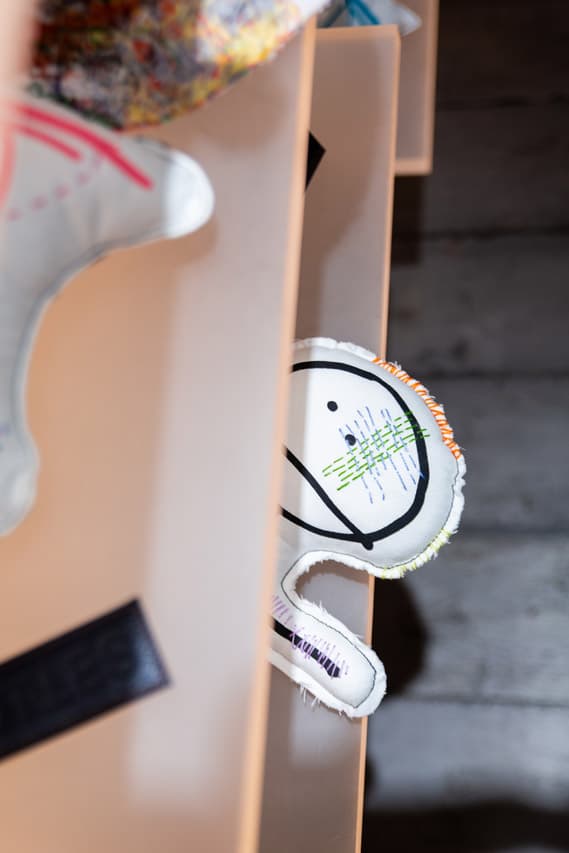
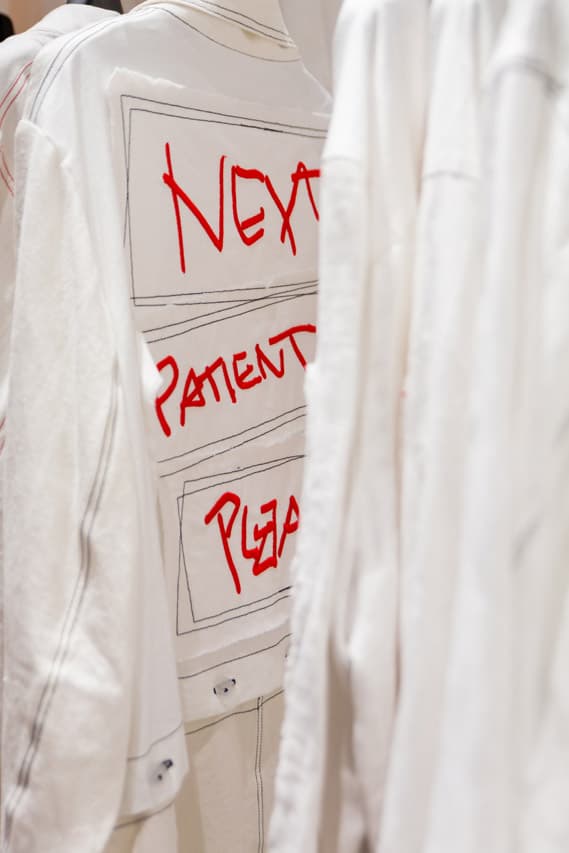
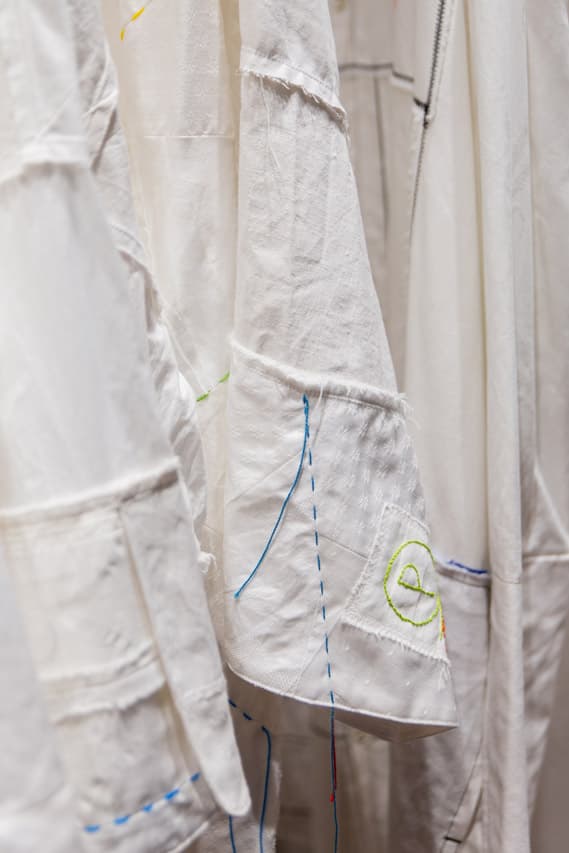
The fashion industry hasn’t exactly been eco-friendly over the years. Reports about issues like water pollution or excess CO2 emissions have played a significant role in inspiring brands to creatively tackle the problems — Swiss-based imprint SOTTES has taken a unique approach to the issue. The label embraces slow consumption with a focus on limiting quantity, making each piece by hand through 100% upcycled materials.
Founded by designers Jeanne Guenat and Elliot Upton, the label was named for the French word “sottes,” meaning “rebellious” and “childlike,” and that ethos is reflected in how they go against industry standards. Their designs are known to have a subversive punk-like quality to them — heavy deconstruction, asymmetrical patterns, doodly graphics, etc. Both designers trained under Vivienne Westwood’s atelier and that discipline shows in their complex designs. But the question remains: will our efforts to make fashion more sustainable catch up to the rate at which we consume it? SOTTES believes that it all starts with educating the consumers. We sat down with the creative minds behind the Swiss label at their new shop-in-shop concept at Surrender, Singapore, to examine their views on the fashion industry today and their unique approach in dealing with the changes happening to the environment.
Tell us about your background in design and how you two met.
Jeanne has a background in tailoring, pattern cutting and fashion design, while I (Elliot) have a background in graphic design, illustration and fashion design. We both met whilst working at Vivienne Westwood in London.
What inspired your eco-friendly garments?
If we were to start a brand together, it was always going to be something that would make a difference and go against the grain of the fashion industry. Rather than going down the route of a fast fashion business model we wanted to create clothing that would change the future of fashion. There are so many brands adding to the problem of mass waste and cheap labor. We wanted to be part of the solution.
What are the main challenges that come with making sustainable clothes?
The main challenge that we have come across so far is trying to respectfully educate the consumer about what the negative impacts there are to buying fast and cheap clothing. It’s difficult to change the habit of a lifetime but we believe that with our focus and strong message, our philosophy will eventually become a fashion norm.
Give us a rundown of your design process.
Normally a sketch is made and then made into a prototype before choosing the fabric for the final result. As we work exclusively with upcycled materials, we never know which garment will be made of which fabric. The fabric that we source dictates the design. We find this more of an exciting and spontaneous process rather than a textbook way of working.
Your atelier looks very open, with big windows, situated in a quiet space. Do you ever find the space informs the way you guys think about the pieces?
Our studio definitely opens our minds up to new and innovative designs. Being in a remote location gives you the freedom to design and create without unnecessary influences and trends that you would find if you worked in a big city, surrounded by other fashion houses.
Many of the pieces are white. Is this to limit the number of washes and dyes? Are you looking to add in more colors in the future?
The white fabric was originally to symbolize a blank canvas on which we would build an identity. Our plan is to always be adding more colors and print designs as the brand moves forward. We also wanted to showcase the beautiful vintage fabrics, as many of them feature intricate patterns and details which aren’t seen very often in store-bought fabrics.

Daniel Chan/Fourthree
Tell us about the RECOMMENCE line. How does this differ from the main line?
RECOMMENCE is the main line that will see new pieces added to it throughout the year. The capsule projects differ from RECOMMENCE as they are subject to what new materials we can find. Capsule pieces are of a limited run depending on how long we can stretch the materials.
What do you guys think of fashion collaboration? And any coming up for SOTTES?
Collaborations with stores that include pop up events and exclusive pieces for different locations is definitely something we are looking at for the near future. Collaborations with other brands and artists are something that we would be interested in exploring but their vision would have to be in line with what we are trying to create with SOTTES.
What do you think about the new generation of consumer culture?
The new generation of consumerism is fast and unthoughtful. People are very much influenced by celebrity culture and what the current trend is. This year it seems that being a brand that is environmentally-friendly is just a trend, so people will still expect to buy slow fashion garments for a fast-fashion price.
What are three things you guys learned since starting SOTTES?
One is that upcycled fashion to its extremes is something for the near future and people need time to understand the process that goes on behind making a garment. Two, building a community of like-minded people is important for development and creativity in a world of mass production. Three, how to motivate and inform the people that we work with about a fashion direction that feels alien to what they have known their whole lives.
With all the statistics going around about the negative environmental impacts of the fashion industry, what role do you guys feel SOTTES plays in that?
The role that we play in the industry is to have a zero-waste mentality and to not create things from new materials. The fact that our garments are one size, season-less and unisex plays a huge part in making sure there will be nothing that goes to waste. As we have our own studio and don’t produce in mass from factories, we have the opportunity to work the way we want to see fashion moving forward.
Another main point for us is that it is important to pay our employees a living wage and provide a comfortable work environment for everyone. If you want to save the planet then you also have to save the people that live on it too. Doing one without the other doesn’t make sense for us.

Daniel Chan/Fourthree
Switzerland is radically vulnerable to climate change as temperatures in the country rise twice as fast as the global average. While every part of the world deals with climate change in its own way, do collective environmental concerns in Switzerland influence any of your designs? What would you like people to know about climate change?
Our philosophy and the way that we work is, of course, a result of what is happening in the world today. With such a radical message behind the brand we like to keep the aesthetic and visuals on the playful side. We still want people to have fun with fashion whilst still being aware of the work behind it. We feel that if we had an extreme aesthetic to go along with the message then people might be too intimidated to make the transition from fast fashion to slow fashion. We want people to simply be aware of the changes that are happening in the world and that every action has a rolling effect. It is important to educate yourself on current events and to do your part to make things better. As long as everyone changes one thing in their daily lives that is positive, then it would make a huge impact on the planet.
What’s next for SOTTES?
We will continue to work towards what we believe in without any compromise. Eventually, this is the direction that fashion needs to take before it is too late. We hope in the near future to collaborate with more stores that share our vision to continually spread the message of slow fashion, and to encourage young and upcoming designers to change the way they work for the better.
























